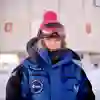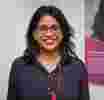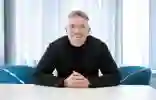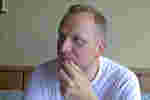Nina Purvis: “I’m working on research that will inform future missions to Mars”
Dr Nina Purvis is based at one of the most remote research stations on Earth. Combining her research background and love of space with her clinical qualifications, she’s shaping medical considerations for future missions to Mars.

Degree
MPhys Astrophysics, PhD Medical Sciences
Year of graduation
2012, 2017
Current occupation
Surgical resident doctor
When did your interest with space begin?
When we bought our first computer for home, the first internet search I ever did was to look up NASA astronauts to find out more about them and their qualifications. I loved science, especially physics, and space was so fascinating to me. I’d spent years reading books when my parents thought I was asleep, then I got a bit older and wondered how I could make my interest into a career.
What really brought my clinical practise together with space was when I was doing my Masters in Space Physiology and Health at King’s College London. I had to change my dissertation topic due to the pandemic, and decided to look at methods and equipment to do surgery in space, as there seemed to be a gap in knowledge about that. I wrote an article for The Conversation that went viral, and I won an early career research award for my dissertation from the Physiological Society.
I thought: Maybe I can
make my own path!
Nina testing samples in the laboratory at Concordia Station. Credit: PURVIS/DC21/ESA/IPEV/PNRA.
And what took you to Antarctica?
During my studies I’d seen a presentation from Dr Stijn Thoolen, previous ESA doctor, about the research that goes on here on Concordia Station. He works at NASA now and I'm carrying out one of his projects here this year; he was very inspiring.
I realised there was a gap where I could combine my chosen medical field of surgery with space. If you're a doctor in the Royal Air Force, you usually specialise in general internal medicine or general practice or anaesthetics and then you can go onto specialise in looking after pilots and aircrew. It’s not really surgeons who do that job of aerospace medicine. So, I thought: ‘Maybe I can make my own path!’
I thought: ‘I'm going to apply [to the ESA programme] when I've got enough clinical background and when I've got my research experience solid in space medicine.’ Now I’m working on research projects that will inform future missions to Mars, and help astronauts stay healthy and perform their jobs well.
The view from Nina's bedroom window at Concordia Station, Antarctica, also known as 'White Mars'. Credit: PURVIS/DC21/ESA/IPEV/PNRA.
What are the challenges of working in Antarctica?
We live in an ICE environment: Isolated, Confined and Extreme. We’re based on the top of a glacier at high altitude – meaning we take in less oxygen and the air is low in humidity – with a small crew over winter with no transport in or out in case of emergency. In the summer, there are lots more researchers and scientists, which means busy days and lack of personal space because of sharing a room – a different type of challenge. There are 13 of us over-wintering and you do become like a family. We're all different professions, ages and cultures, but we’re committed to our roles, and we know how we work as a team now.
It's been quite tough for the winter because you really have to knuckle down, do your work and try and remember why you're here. There are several teams and roles that we have within these teams. I'm the lead and doctor for the search and rescue. So, if something goes wrong outside in -80°C in the dark with hypoxia, that’s on me. Because of the lack of oxygen, everybody can't perform as well as they usually would – it's hard work. You're essentially on call 24/7. It's a lot of pressure. You sleep with one eye open in case something happens, but you do adapt pretty quickly.
Nina and her colleagues conducting a search and rescue exercise in extreme conditions. Credit: PURVIS/DC21/ESA/IPEV/PNRA.
There must have been fun times, too?
Oh yeah! This week is exciting. We're doing something called the Antarctica Games. It's like the Olympic Games and all the stations take turns doing different sports competitions, a music quiz and a painting competition. We've all been doing that in our spare time and it's nice because it's something to concentrate on.
People get quite competitive, but we've got an excuse because of the conditions we’re working in. If we win, it means that we're amazing because we have low oxygen here – it's like we're superhuman. And if we lose, that’s our excuse too!
'We live in an ICE environment: Isolated, Confined and Extreme.' Credit: PURVIS/DC21/ESA/IPEV/PNRA.
So what brought you to the University of Hull?
I was the only one at my school to do A level physics, which was tough – there was nowhere to hide if I hadn’t done my homework! When it came to choosing a university, I didn’t have much guidance. I remember going through the list of courses alphabetically and seeing Astrophysics at the top. And I thought: ‘That's it – space!’
Hull wasn’t too far from home. But it was far enough to have some independence. I wanted to get out of my little hometown and go to a city – and for it to be affordable, too.
I looked at the University’s website and saw it had been involved in inventing the organic light emitting diode (OLED). There was lots of information on the Physics department website, including projects that had spun off into companies. There were also student profiles showing who'd gone on to do Masters and PhDs in the same department. It looked like people who went on to further study at Hull had done their undergraduate most of the time there, too – that's another good sign. And it looked like they really cared about their students.
How did you find your time in Hull?
It was very easy to integrate – not just with student life, but the local life as well. I ended up making a lot of friends and had a boyfriend who was in a band there. And it just felt cool. I felt like I was living the young adult life and finding myself.
I met one of my best friends while living there. We were put in a house together as we both studied Physics. We’re very different and I don’t think we’d have chosen to live together until fate decided so, which is funny. She’s still my best friend and we’re in touch often, even though I’m in Antarctica. We lived near each other in London for a while, too.
I had a job at the Welly Club while I was at uni. The manager spotted I was good at maths, so they asked me to look after the tills on the weekends. I was only busy at the start and end of the night when people arrived and left, so I managed to do my Physics homework while sitting at the desk! I saw nearly every student in Hull working there, so I made lots of friends.
One friend I’m still in touch with helped negotiate for me to sit the extra A levels I needed to go to medical school at the high school where he teaches in Hull. I had to pay, of course, but it was great to be able to take them somewhere familiar and to use that network.
“I grew as a person ... I went from incredibly shy to loving working with people in challenging situations.”
The value of going to university has been challenged in the media a lot recently. What advice do you have for people considering whether to go?
Think about what your vocation could be and how going to university will help. For me, medicine is a vocation and has a set progression pathway albeit competitive. You’ve got to have a long-term plan. But I do think it's worth going to university because it helps you grow as a person and develop learning skills as well.
As a young adult coming straight from school and going into lifelong work, I could never imagine how I would have managed. But after university, I grew as a person so much. I went from incredibly shy to loving working with people in challenging situations.
When I speak to students and they ask for advice about choosing a university, or about choosing a research project for PhD, I say: “It's not about the topic. It's about the mentoring and support.” I was so supported as a person – even when things went wrong, as they always do, which was important.
I was diagnosed with dyslexia when I was 26 – I didn't know growing up or when I was at home. Clearly it affected things like writing essays. I always did very well on the maths side. But when it came to writing an essay I would struggle, especially with deadlines. The lecturers at Hull always asked what more they could do to help. My tutors signposted me and I got diagnosed a few years later. It’s made a real difference, knowing the root of the things I struggled with.
“I stayed for 10 years and it felt like home to me ... whatever you put into Hull, you get back from it.”
What would you say to someone considering going to university in Hull?
I want to mention the culture. I didn't appreciate it in the first year because I was so wrapped up in the student community. But when you go around the area and around the museums (it was City of Culture while I was there as well), you realise this is a pretty cool city.
And just as a young person to be there. It's got a cool music scene. It's got lots of nice restaurants. It's worth investing in. That's why I stayed for 10 years, and it felt like home to me. My parents would come visit all the time and I was proud to show it off. It felt like a good place to live – not just for the university life, but for general life too.
I feel like whatever you put into Hull, you get back from it.
Dr Nina Purvis graduating in 2017 with a PhD in Medical Sciences from Hull York Medical School. Credit: PURVIS/DC21/ESA/IPEV/PNRA.
About Dr Nina Purvis
Dr Nina Purvis graduated from the University of Hull in 2012 with an integrated Masters degree in Astrophysics, and in 2017 with a PhD in Medical Sciences from Hull York Medical School. In 2024, she headed to Antarctica to work for the European Space Agency as part of the 13-month winter-over crew at Concordia Station, fulfilling a lifelong dream of working on space medicine research.
As the first person in her family to go to university, Nina has made the most of the opportunity. She’s now a qualified medical doctor with a research interest in space medicine, having studied for a Bachelor of Medicine, Bachelor of Surgery (MBBS) via graduate-entry from Barts and the London School of Medicine and Dentistry, as well as an MSc in Space Physiology and Health from King's college London.

Indhu Rubasingham
BA (Hons) Drama, 1992
Indhu’s achievements have long been a source of pride for our community. In 2017, the same year as her MBE award, she received an Honorary Doctorate. The next year, in 2018, Indhu returned to campus to take part in a ‘Women in Leadership’ event.

Conor Horne
BA (Hons) Accountancy with Financial Management, 2013
Conor graduated from the University of Hull in 2013. He lives in Farnham, Surrey, with his wife and two children and is currently Global Business Development Director at McLaren, having previously held senior leadership roles at Lotus and Forseven.

Daniel Swift MBE
MA Theatre Making, 2019
Daniel is an inclusive theatre leader, creative producer, and changemaker transforming access in the performing arts.

Ed Parnell
BA American Studies, 1996
Edward Parnell, a 1996 graduate in American Studies, is the author of Ghostland, shortlisted for the PEN Ackerley 2020 Award. His debut novel, The Listeners, won the Rethink New Novels Prize in 2014.
Image credit: PURVIS/DC21/ESA/IPEV/PNRA